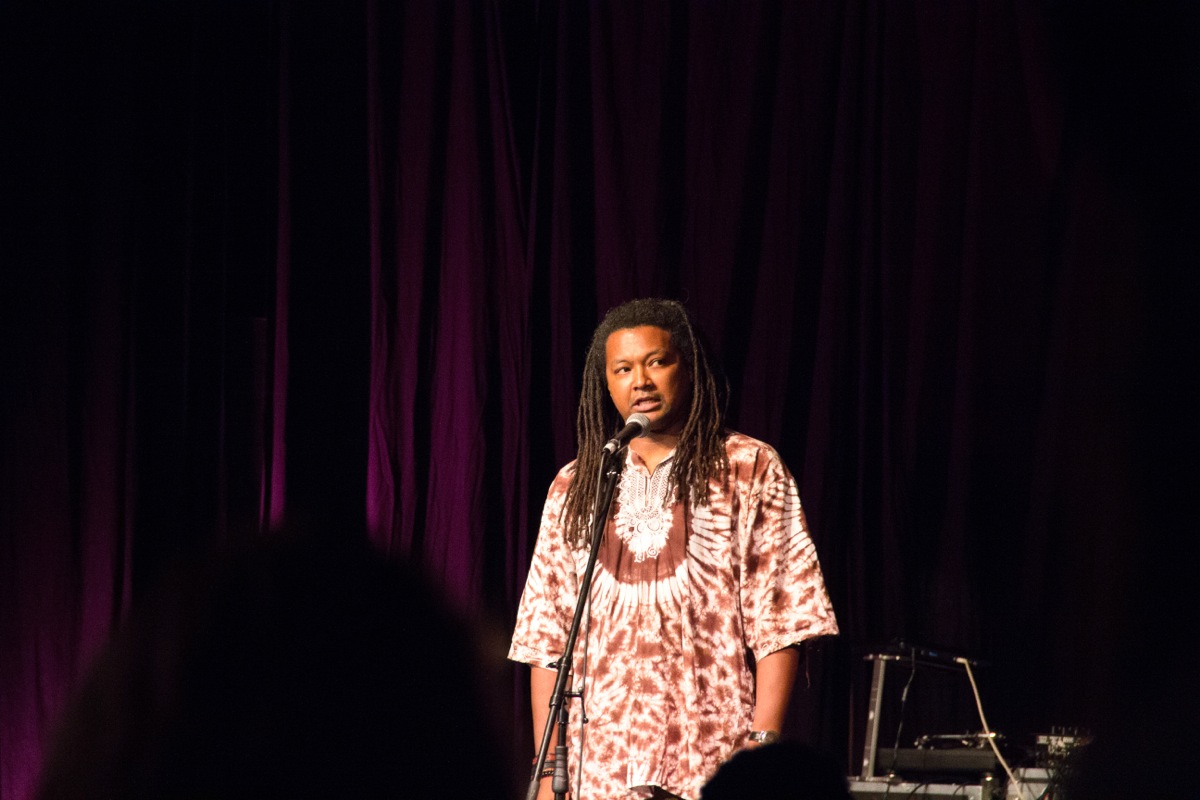Thanks to a burst coolant line on the bus from Swartz Bay to Victoria, I was literally introduced to slam poetry while sitting alone at the back—the Guelph Poetry Slam (GPS) came and sat just ahead of me. We shared a laugh over the bus driver’s announcement and nervous pun—“Well folks, it looks like we’re dead on the water…”—as the driver had stopped next to a lake. Earlier, I heard one of the members say, “I am a poet not a fighter!” and knowing the festival started that evening, I asked if they were participants. They were.
The Canadian Festival of Spoken Word (CFSW) is a five-day annual competition of slam poetry for national glory, which took place this year in Victoria on Oct. 13-Oct. 18. After attending four nights of electric poetic antics, summarizing the experience produces blank-mindedness.
The event spanned 13 two-hour bouts of slam poetry, seven of which I attended. A bout contains four teams and four rounds. A team can send up one or all members for their allotted three-minute piece. Each work must be original and cannot be used again in the competition.
My original plan was to check out a bout or two, but before I had even thought about it, I attended the rest of the festival. Poetry is inherently subjective, emotional, and full of surprises which the listener can only experience if willing. I went on a whim and the rewards were immeasurable. The mid-week bouts yielded roughly 30 to 50 people a night, while the national finals filled up about half of the 800-seat Alix Goolden Hall.
Slam poetry glares difficult topics in the eye and does so with confidence in front of an attentive audience. The content of some poems brings powerful emotions to the surface. Some poets spoke vividly about experiences of child abuse or rape.
After such bold statements, silence fills the hall, making your head quiver and your spinal cord shiver. The appeal of poetry lives through the experience of sharing and listening to what people say. The spoken word art form offers a chance for anyone to speak. There are no rules, except for the few within the competition itself: no props, no nudity, and no oppressive speech.
Because the art form is accessible, a variety of community members attend and speak. If education existed for empathy, compassion, and rhythmic expression, slam poetry events could yield bachelor’s degrees.
Rafay Ansari, who has been performing slam poetry for three years says, “It’s about the networking opportunities with poets all across Canada.”
Mutual encouragement precedes every bout—“lets go poet!,” and, “remember why you wrote it.” GPS’s members were consistently the most supportive.
Ansari wants to see slam poetry deliver messages spanning continents. With YouTube and the finals rounds live-streamed, its possible; from sharing intimate beliefs and experiences, the preconceptions of identities, stereotypes, prejudices, and socially constructed divides are challenged and put away.
Community is priority. Poets from all across Canada attended the festival, and there was a keen sense of camaraderie; the poets cared for and encouraged one another despite competing. Spoken word and storytelling are persistent forces of human expression and understanding human collective thought. Some jokingly view spoken word poetry as therapy; however, the act of sharing, even mere words, does something within us, and it becomes apparent when we listen.








